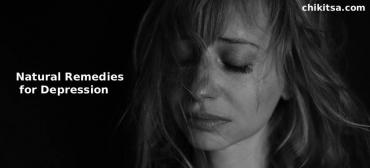Holistic Medicine, Does It Really Work?
Holistic medicine is a form of holistic health care that takes into account the physical, mental, emotional, social, spiritual, and environmental influences that affect a person’s health. It is a term used to describe the process of treating body, mind, and spirit as a whole in order to achieve optimal health. It is based on the idea that the human body has the ability to heal itself and prevent illness when the body is in balance and in harmony with itself and its environment. Holistic practitioners focus on finding and treating the root cause of an illness, not just its symptoms. Holistic medicine also looks at the person as a whole, taking into account lifestyle, environment, and various other factors that may be contributing to any particular health problem. They believe in treating the whole person, not just the disease or the symptom.
Does Holistic Medicine Really Work?
The answer to this question depends on how you define "working." While it's hard to measure the success rate of holistic medicine, there is evidence to suggest that it may be beneficial to some people, especially those who have conditions that traditional medicine has been unable to treat. For example, some studies have found that acupuncture can be an effective treatment for chronic pain. Similarly, evidence indicates that yoga can help reduce stress and improve mood. It's also important to note that many people believe in the power of holistic medicine and say that they have seen tangible benefits from making changes to their lifestyle and following holistic approaches to self-care. So while it may be difficult to quantify how well holistic medicine works in general, it may be helpful for some people. Also, let's not forget that the placebo effect actually is a proven scientific fact.
Have You Heard About Medical Intuitives?
Medical intuitives are practitioners who use their intuitive powers for healing through the practice of intuition. Unlike conventional medical practitioners, medical intuitive use their intuition and insight to detect the underlying causes of illness, as opposed to focusing solely on the physical symptoms. They employ a variety of techniques, such as energy healing, channeling, visualization, psychological healing, etc., to restore balance and harmony to the individual's energy field. Medical intuitive may use their skills to diagnose the root cause of an illness or to identify potential health problems before they become serious. It is important to note, however, that medical intuitives are not licensed to provide medical advice, and their services should be used as an adjunct to traditional medical treatments, rather than a replacement for them. To know more about the subject you can read what is a medical intuitive from Patrice Krysztofiak.
Different examples of holistic medicine
Acupuncture
Acupuncture is a form of traditional Chinese medicine that has been used for thousands of years and is still in use today. It involves the use of very thin needles that are inserted into specific energy points on the body. The needles help to improve the flow of energy, which can help to reduce pain, stress, and fatigue. It is believed that when the energy flows freely, the body can return to a state of balance, which is essential for optimal health and well-being.
Ayurveda
Ayurveda is an ancient system of healing using herbs, nutrition, and lifestyle strategies. This form of holistic medicine aims to restore the balance of the body, mind, and spirit and is often used to treat chronic conditions. It is based on the belief that the body, mind, and spirit must be in alignment for optimal health. Ayurvedic practitioners believe that when these elements are out of balance, illness can occur.
Yoga
Yoga is an ancient practice that combines breathwork, physical postures, meditation, and mantra. It is believed to be an effective form of holistic medicine that can promote physical, mental, and spiritual health. Yoga is thought to ease stress, increase flexibility, and boost the immune system, all of which are believed to contribute to a state of overall well-being and improved health.
Aromatherapy
Aromatherapy is a form of holistic medicine that is based on the use of essential oils extracted from plants. These oils are believed to have healing properties that can help to calm the body and mind and reduce stress. Aromatherapy is often used in massage therapy to help relax the body and promote healing. It can also be used in baths, inhalations, or diffusions to promote relaxation, improve mood, and increase energy. Holistic medicine is an approach to health care that focuses on the whole person rather than just treating symptoms. There are many different forms of holistic medicine, such as acupuncture, Ayurveda, yoga, and aromatherapy, all of which have been used for thousands of years. Holistic medicine is not meant to replace traditional medical treatments, but rather to complement them and help promote a state of balance and overall well-being.









